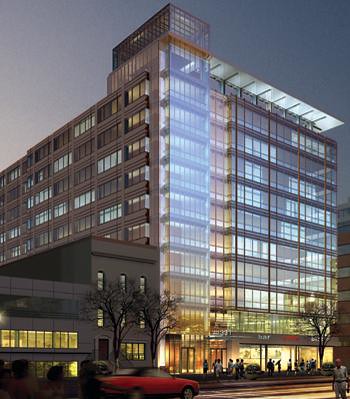What I find frustrating about the media coverage of real estate development generally is that people caught up in hysteria and chatter about "the" current crash seem to have forgotten about all the previous crashes. They run the same way in every cycle:
- over extended developers and owners get screwed and have to sell at rock bottom prices
- mortgage holders and banks get screwed and have to sell at rock bottom prices
- well funded companies (and individuals) buy great properties at great prices
- with lower cost economics because of fire sale prices, the well funded companies make further profits, often at extranormal rates, as a result
- eventually -- in strong markets anyway, not weak markets -- the rest of the market catches up and the development cycle begins again
- as the development cycle maintains itself, newer participants with money, gumption, and less experience jump in, take more risks, and as the bust cycle approaches, lose their shirts...
The basic lesson from the previous crashes is that in relatively strong metropolitan areas and communities, that despite cycles in real estate markets, particularly in well placed locations, such as the central business district or by transit, land and properties maintain their value.
Now you might have to wait 10+ years or so, like people in DC did, from 1988 the previous peak, to 1999, when the local market changed because of the change in political leadership from Marion Barry to Anthony Williams. Co-terminate somewhat with a slight uptick and change in interest and willingness to live in the city favoring urban centers, this led to a 10 year boom in the local real estate market. Sure there were some hiccups from time to time. But the boom was massive.
Then of course, with the bankruptcy of Lehman Brothers and subsequent crash in urban commercial real estate development as Lehman was both a lender and participant in projects, things froze for awhile.
But the players with money swooped in and bought property at lower prices with good values and they are making money.
One example is Equity Residential, which bought two apartment buildings (intended for condos) at 4th and Massachusetts NW. Their lease rates are far higher than they expected. See "
Best Real Estate Resurrection of 2010: 425 Mass" from DC Urban turf.
But the real winner was Co-Star, the real estate information firm. They bought an office building from a distressed seller, ironically from the Mortgage Bankers Association, only 12 months ago, and they've sold it for a $60 million dollar profit. See "
CoStar agrees to sell its new HQ" from the
Washington Business Journal.
Smith Group Rendering of 1331 L Street NW, the headquarters property of the Costar Group.
I guess it makes sense that the Mortgage Bankers, enthralled with subprime mortgages, derivatives, and other financial engineering practices, weren't too knowledgeable about long term fundamentals of the commercial real estate market in DC's central business district. The ironic thing is that CoStar got some property tax abatements to relocate to DC. They got money out of this deal from every possible angle. See the Costar press release from January 2010, "
District of Columbia Offers $6.1 Million Tax Abatement."
This reminds me of the remonstration following the Rockefeller Family's sale of Rockefeller Center in NYC, an iconic property, to the Mitsubishi Trust. Everyone lamented how it meant that Japanese business interests were taking over. Of course, the Rockefellers sold at a huge profit just before the real estate market crashed. Someone else was quoted as saying "that's why the Rockefellers are Rockefellers. They know when to sell and take their profits."
Sure the recent boom was overwrought, fueled by speculation and cheap money and some of the projects were overpriced.
But with time, at least in strong markets like DC, things will rebound, and soon enough by the time of the next crash, people will have forgotten the lessons of this crash.
Labels: real estate development




0 Comments:
Post a Comment
<< Home